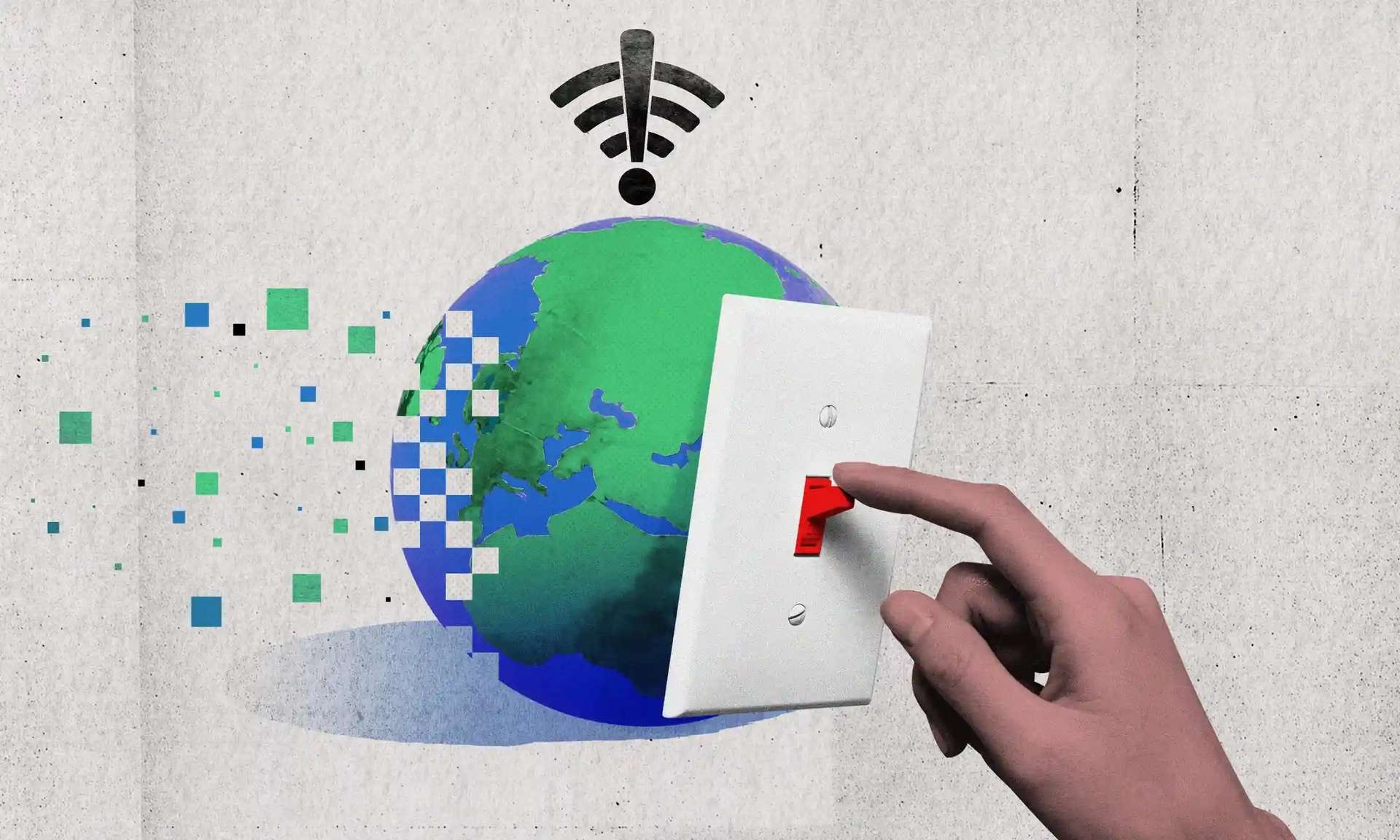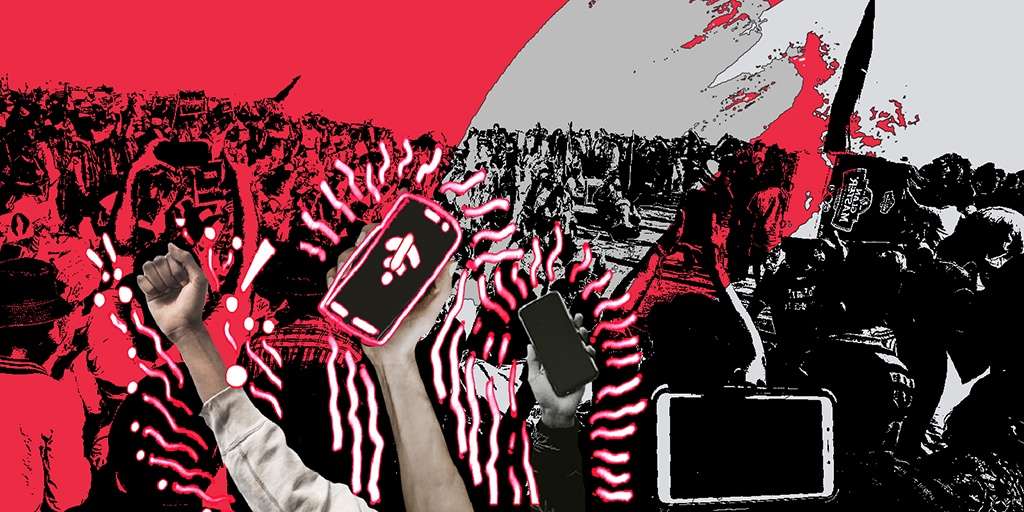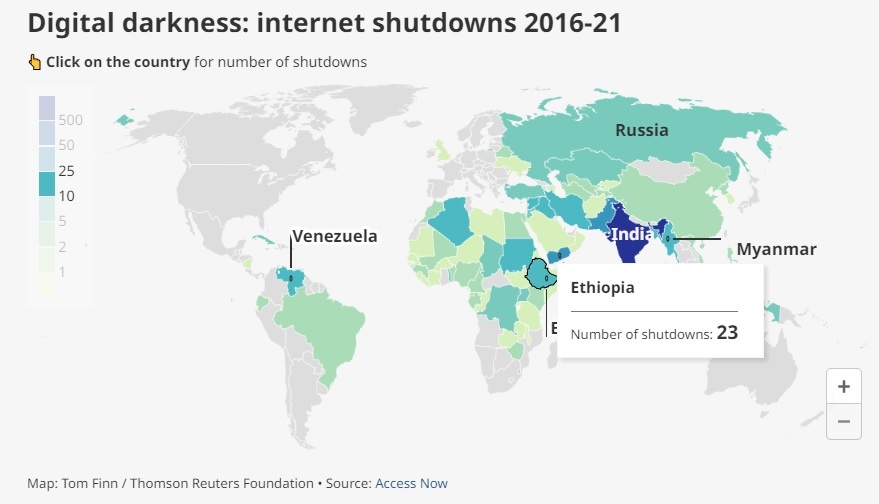“We are going through the most terrible days because we are isolated from the world,” said the Ethiopian.
Gotytom Gebreslase, the Ethiopian athlete who won the world athletics championship in July, burst into tears when he was asked:
“Are your parents celebrating their daughter’s victory at home?”
The female athlete confessed that she has not been able to contact her family for a month since participating in the tournament:
“I wish they could celebrate my victory like other Ethiopians.”

Even communicating with loved ones is difficult for Ethiopians. Photo: The Guardian.
The cause of this incident is that Tigray, the hometown of Gotytom Gebreslase, has been disconnected from the internet and phone signal for the past 2 years.
Isolated from the world
An armed conflict in late 2020 led the government to isolate Tigray from the rest of the country. As a result, people here have been cut off phone waves, internet, security services, banks, fuel,… even electricity.

Without the Internet, phone waves, Ethiopians as isolated from the world. Photo: Access Now.
Tedros Adhanom Ghebreyesus, Director General of the World Health Organization (WHO) is also a native of Tigray. He confirmed that it was not possible to contact relatives and relatives who are in Tigray:
“I couldn’t inquire about their health, couldn’t send aid money, I couldn’t even tell if anyone was still alive after the war.” Excerpt from his speech at a conference in England.
The truth is that Ethiopians have suffered from “living in the stone age” for the past 2 years because all electrical appliances are useless. A 15-year-old boy named Tolessa normally uses his phone to watch football and text friends. But now the electricity has been cut off, making even the simplest of his hobbies unfulfilled.
Although riots were common in the past, people can still communicate with each other by phone to seek shelter in time. But when the electricity and internet are cut off, everything depends on luck.
To keep children safe, many families, including Tolessa’s parents, have tried everything to get their children to safety. Tolessa was sent to live with relatives in Addis Ababa, more than 300km from her hometown. In this place the boy will have hope for a more decent life, but it will also mean cutting off contact with his family.
“It’s been a long time since I’ve had contact with my parents.” Tolessa said.
Some people are luckier like Eyassu Gebreanenia (24 years old). Occasionally he can use Wifi at a friend’s work, an international non-profit organization. The place where he lives was once the major economic center of the region, but since the power cut and the internet, all services from hospitals, restaurants, hotels and businesses have been paralyzed.
“It feels like we’re living in the Stone Age, no one knows how we had to go through some of the hardest days while being isolated from the world.” Eyassu confided.
The Internet can become a weapon of war.
However, in the face of extreme unrest in Tigray, Ethiopian Prime Minister Abiy Ahmed and the government both agree that disconnecting the internet and isolating the land will help reduce violence and limit violence. negative news to the people of the country.
Frehiwot Tamiru, CEO and representative of telecommunications company Ethio Telecom also agreed with this idea, saying:
“This is the right decision, criminals can take advantage of the internet and social networks to spread violence and disinformation against the state.”
But many experts also believe that this action of the government is unreasonable, the internet and power cuts seriously affect the provision of relief services and directly affect people’s lives.

So far this year, Ethiopia has been cut 23 times. Photo: Access Now.
Local newspapers also said that the government is taking advantage of the power cut to become a weapon of war. These waves of “isolation” are taking place increasingly sophisticated, lasting continuously with great social and economic impact.
Although according to the government, the power and internet cuts help to effectively control and control information, but it also makes it difficult for people to get outside support. All rescue services, medical care, etc. were also paralyzed because there was no electricity.
Human rights organizations around the world strongly condemn this act of isolation by the Ethiopian government. It seriously violates the human rights of the citizens here, when even the most basic services like Facebook and WhatsApp cannot be used.
Responding to this criticism, the Ethiopian government said it would build its own social networking platforms to replace Facebook, Twitter and WhatsApp, helping people to reconnect with each other as soon as possible.
See also: The suitcase suspected of having b.om in Japan turned out to be full of adult toys